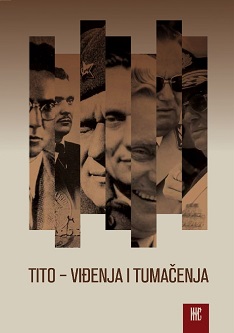Titove titule: Josip Broz i naučne ustanove
Tito's Titles: Josip Broz and Scholarly Institutions
Author(s): Dragomir Bondžić
Subject(s): Diplomatic history, Political history, International relations/trade, History of Education, Post-War period (1950 - 1989)
Published by: Institut za noviju istoriju Srbije
Keywords: Josip Broz Tito; honorary titles; doctorates; academies; universities; science; intelligentsia; personality cult; ideology;
Summary/Abstract: Between 1947 and 1979 Josip Broz Tito became a honorary member of all Yugoslav academies except for the Vojvodinian one, doctor of military sciences, honorary doctor of four universities in the country and nine abroad. All these titles played an important role in the creation of the personality cult and in shaping the esteem for the Yugoslav leader on domestic and international level. Scholarly titles added a component of scholarly esteem that complemented his political power and undisputed influence in the state and the society. Scholarly honors were granted at carefully chosen junctures when personal promotion of the leader partly alleviated the current incidents and problems in the state and the society. The conferring ceremonies themselves were well thought out and organized celebrations of the personality and scholarly contribution of Josip Broz, used by the republics' nomenclatures and adherents in the field of science to approach him, ingratiate themselves with him and make a contribution to the creation of the personality cult. On such occasions, apart from gratitude and historical remarks, Tito expressed opinions on the ideological and political, often also on expert situation of science, but above all, he gave tasks and directions for the development of science and scholarly institutions in socialism. Most often he stressed Marxist basis, cooperation with the economy, participation in building of socialism and in creating socialist intelligentsia, cherishing the achievements of the „People’s Liberation War" and the brotherhood and unity, the aid to underdeveloped countries, study of nonalignment and self-management, struggle against ,,un-socialist tendencies" and „negative phenomena" among the intelligentsia. Finally, Tito occasionally had contacts with the scholarly institutions whose member he was, visited them, received their delegations, accepted their birthday greetings and presents and was participant and patron of conferences and celebrations that they organized.
Book: Tito - Viđenja i tumačenja
- Page Range: 372-384
- Page Count: 13
- Publication Year: 2011
- Language: Serbian
- Content File-PDF

